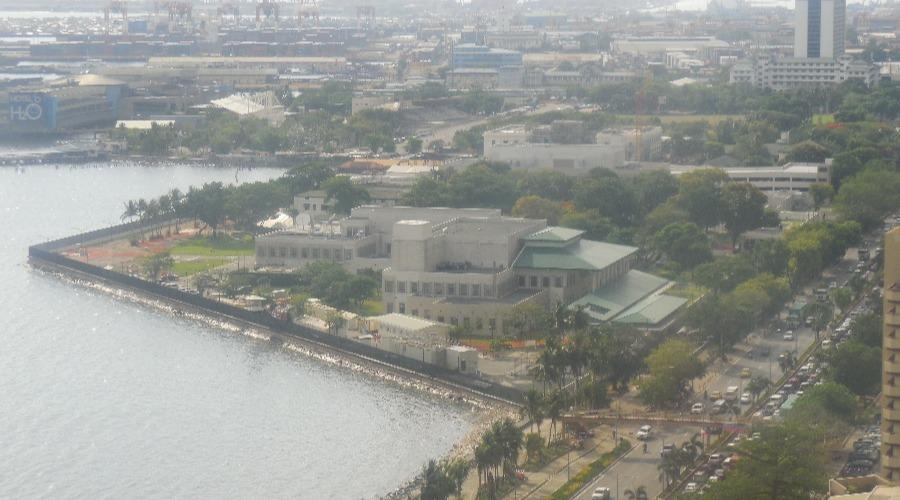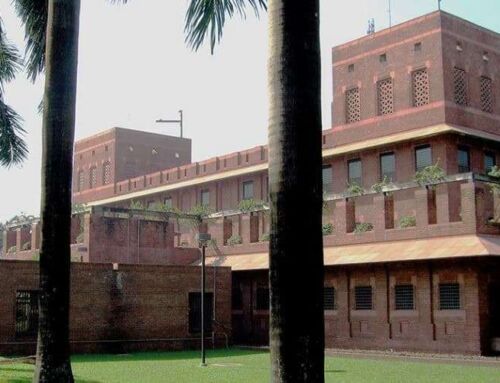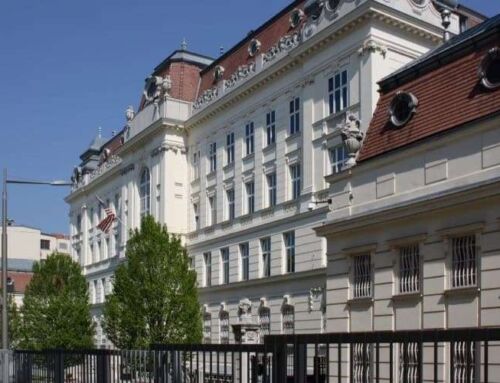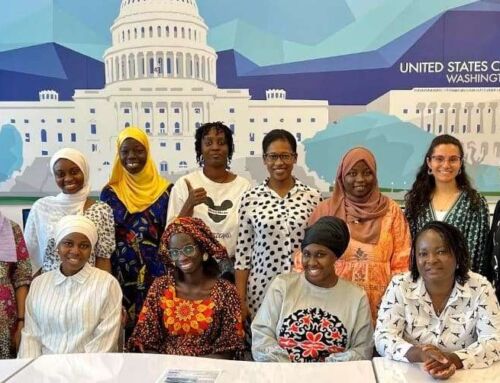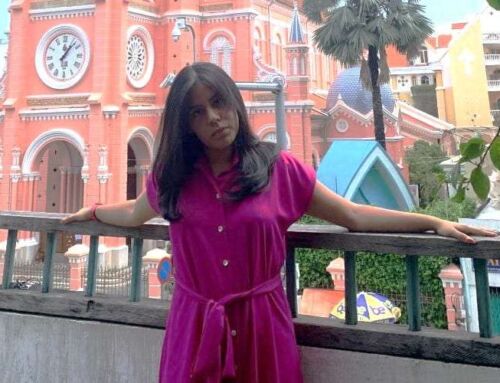Mia Bennett successfully completed the Foreign Affairs Information Technology (FAIT) Fellowship program in 2022 while earning a Bachelor of Science in Computer Science with a minor in Korean Studies at the University of Maryland, College Park. Her first post in the Foreign Service is the U.S. Embassy in Manila. Since this interview, the Information Management Specialist (IMS) role has evolved into the Diplomatic Technology Officer (DTO) role.
What inspired you to pursue FAIT Fellowship program?
I was inspired to apply for the FAIT Fellowship program because I thought it was a good way to combine both my personal and professional interests. I always really wanted to find the job that would let me travel, which this job does. Professionally, I was always more interested in the I.T./tech side of things. My major was in computer science, so I like being behind the scenes, being the tech person to figure all of that out. I feel like there wasn’t anything more suited for me than the FAIT Fellowship program that merged both of my interests.
What advice do you have for individuals working on their application or preparing for the application process?
I would recommend having someone like your friends or your family, people who know you well, read your personal statement. If they’re able to look at that statement and say, “this is a clear representation of who this person is,” whether it’s academically, professionally, or personally, then that’s a great step in making sure that the application stands on its own.
I also think it’s a good thing to figure out whether you like to travel or to live abroad. That was a big thing for me. As I was considering applying, I asked myself “do I want to just travel, or do I really want to have a life and a career abroad?”. There’s a big distinction between the two. So that’s something I debated about for a while and, in the end, I realized I did want to have this entire career and life outside the U.S and experience these new cultures. To me, that was the biggest decision-making factor.
What was a typical week like in your first summer domestic internship in Washington DC? What did you value the most?
My answer is going to be a little bit unique in the sense that my domestic internship was in the height of COVID, so I didn’t meet anyone on my team in-person, it was entirely virtual. You get your State Department account in the first week, which has required online trainings. After that, the typical routine would be morning standup meetings, where everyone says what we’re all working on, and the rest of the day I had to focus on my projects.
What was one of your first projects in your internship?
I worked for the eDiplomacy’s Business Requirements unit in IRM [Bureau of Information Resource Management], which is basically a business consulting team with posts abroad. They wanted a knowledge portal where they could quickly gather data about all of the projects that they had been working on. And they wanted a web app for that. The first half of the project was seeing if one platform was a viable solution from which I could build that app. And then the second part was realizing that it was not a viable solution, at which point I found a different platform and built the web app on that one.
Where was your overseas internship and can you share your most memorable experience?
My overseas internship was in the U.S. Consulate in Sydney, Australia. I think the most memorable experience was probably going to the airport tarmac and doing the Diplomatic Pouch, which is one of the typical responsibilities of a [DTO]. I know doing pouch isn’t the most glamorous task, but since it was my first time, it was really eye opening to see how mail is shipped. Another reason why it was memorable was because you need steel toed boots to be able to walk onto the tarmac. I didn’t have a pair, and post had just ordered a set for the team, so they gave me a pair! Overall, it was a really cool experience to see behind the scenes of how cargo is loaded on planes. And I got to keep the shoes!
Thinking about your experiences over the past two years, can you describe how FAIT Fellowship has affected your life personally and professionally?
I think professionally it’s really allowed me to grow in the field and learn more about it. Again, coming in, my background lies more in software engineering, coding, and the computer science side of things, and I didn’t really know a lot about the hardware/infrastructure of I.T. But this fellowship has really allowed me to learn about that side of I.T., which I think is great. And from a personal standpoint, it’s really made me value the friendships and relationships I have with the people in my life because I know that the time in fellowship is limited – it’s two years – and after that you join the Foreign Service and the rest of your career is abroad. So, for me, it allowed me to really value the time I spent with my family and my friends because I knew that I would be leaving. It really made me appreciate those friendships and relationships I have with people.
Where is your first post in Foreign Service and how do you feel about it?
My first post as a [Diplomatic Technology Officer] is in Manila, Philippines, and I’m very excited. I’ve spoken to people on the team there and they’re also excited to have me, which makes me more excited. But it also makes me more reassured about the process. I’ll land, people are going to take care of me, I know I’m going to be okay. And that is a huge comfort – to know that I’ll be surrounded by great people.
What is the most interesting or valuable experience from your training at the Foreign Service Institute?
The most valuable experience from training at FSI is spending time with the other [IT professionals] and knowing that we’re all starting from various baselines – whether it’s zero or 100 or wherever we are on the spectrum – but everyone supports and helps each other. For me, that’s the most fun and memorable thing coming out of this. I know that if I ever have issues or problems, whether personal or professional, I can lean on them. So, it’s not really a moment or a thing we did specifically, but it’s the people and the environment.
What are you looking forward to most as you embark on your first assignment and start your career with the Department of State?
I’m excited to meet the people, whether it’s the locals there or the other people in the embassy. I’m excited to see how my specific portfolio and the work I do affects the Embassy community members at large. And I also think it’s cool, on the personal side of things, to travel and meet with the other [Foreign Service IT professionals] that we’ve made friends with at their posts or visit family abroad. There’s a great mix of personal and professional activities that we can start to go do on our own now that we’re out of the nest.
Do you have any closing word of advice for those who are thinking about applying?
If you’re interested in applying, I would say reach out to people, whether it’s through the FAIT Fellowship website or through other means. I’ve had people add me on LinkedIn or message me, which is great. Get advice from other people and hearing their stories, determine if this is something you really want to do. And do research into what is the Foreign Service. For me, I didn’t know a lot about it before applying for the FAIT Fellowship. So, a great first step is to just try to gather your head around what this whole thing is, I think, before going forward with your application.

